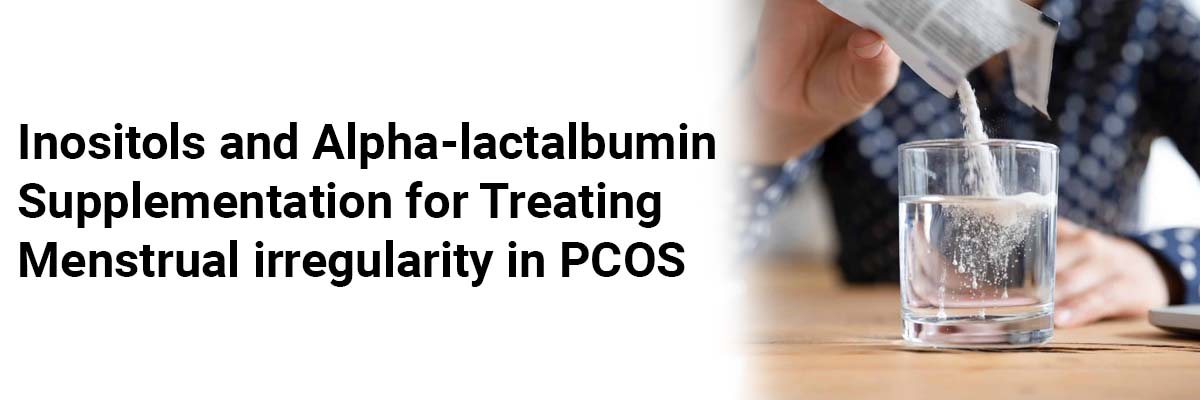
 IJCP Editorial Team
IJCP Editorial Team
Inositols and alpha-lactalbumin supplementation for treating menstrual irregularity in PCOS
An observational study aimed to assess the impact of a combination of
drugs on women experiencing menstrual irregularities due to Polycystic Ovary
Syndrome (PCOS).
This study involved 126 PCOS patients treated at Mahavir Hospital and
Manish IVF Center in Gujarat. The participants were either of normal weight or
overweight – aged between 18 and 30 years, with menstrual irregularities and
anovulation lasting more than 12 months. All women were given orally
administered a combination oral drug (containing myo-inositol 1100mg,
D-chiro-inositol 27.6mg, alpha-lactalbumin 50mg, chromium picolinate 400mcg,
and vitamin D2 400IU) twice daily for six months. The primary outcome was
assessed based on parameters such as changes in body mass index (BMI),
alterations in ovarian volume, and modifications in the menstrual cycle
frequency and duration (M-SCORE). Alpha-lactalbumin was included for its
effectiveness in enhancing myo-inositol intestinal absorption, which is
particularly beneficial in reducing therapeutic failure in inositol-resistant
subjects.
All women exhibited overall recovery, with more significant improvements
noted when the baseline values were farther from the normal range. The
combination drug conferred notable results in rectifying menstrual
irregularities, reducing ovarian volume, and influencing BMI. No significant
adverse effects were observed in this patient group, indicating good
tolerability and compliance with the combination drug.
The findings indicated that this combination drug positively influences
critical parameters in PCOS patients characterized by diverse metabolic
profiles. This supplementation strategy emerges as a viable treatment option
for addressing menstrual irregularities, ovarian volume, and body weight in
PCOS patients. Most participants experienced improvements and regularizations
in menstrual cycle patterns, including frequency and duration, after a
six-month treatment.
There was a mild decrease in BMI for several patients. Although a subnormal reduction in ovarian volume was observed, combining myo-inositol, D-chiro-inositol, and alpha-lactalbumin appears promising in overcoming inositol resistance, potentially enhancing treatment response and providing additional benefits in PCOS. Larger clinical and real-world studies could further contribute valuable insights to the field of PCOS therapy.
Source: Pandya MR, Pandya NM, Narayanan V, Adroja KS,
Patel VC. Indian J Obstet Gynecol Res 2023;10(4):488-493

IJCP Editorial Team
Comprising seasoned professionals and experts from the medical field, the IJCP editorial team is dedicated to delivering timely and accurate content and thriving to provide attention-grabbing information for the readers. What sets them apart are their diverse expertise, spanning academia, research, and clinical practice, and their dedication to upholding the highest standards of quality and integrity. With a wealth of experience and a commitment to excellence, the IJCP editorial team strives to provide valuable perspectives, the latest trends, and in-depth analyses across various medical domains, all in a way that keeps you interested and engaged.





















Please login to comment on this article